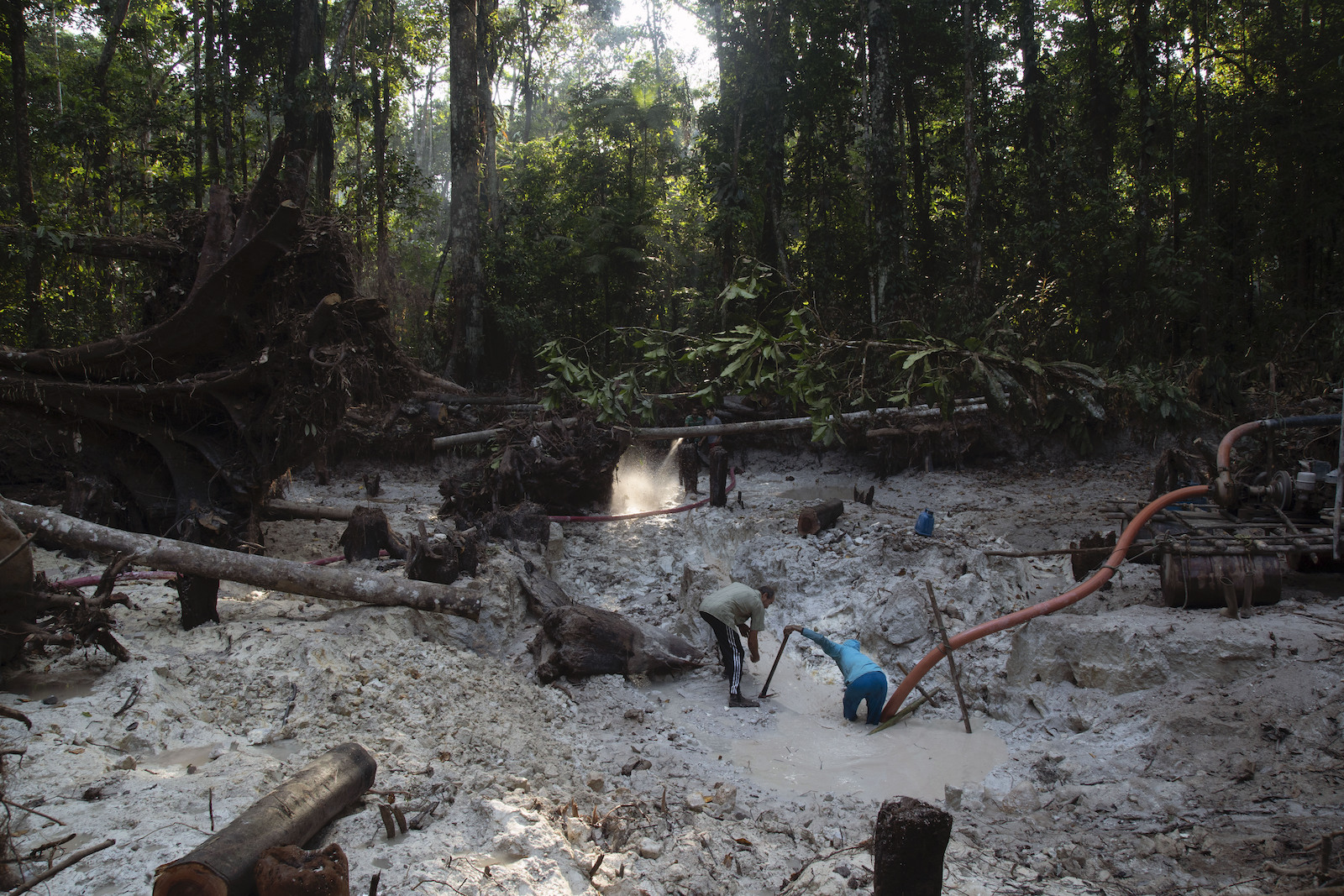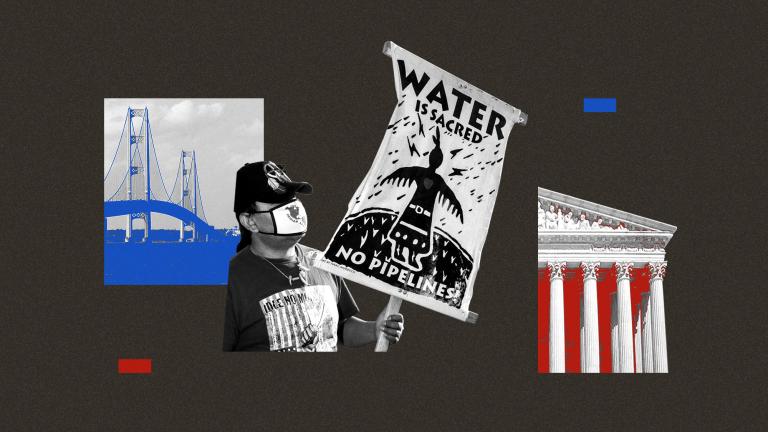Following years of escalating violence by illicit mining operations in the Amazon, Brazil’s Ministry of Justice and Public Safety has sent federal police, a joint military-civilian unit, environmental inspectors, and representatives from the government’s Indigenous affairs agency to protect Indigenous people, seizing illegal gold mining equipment and machinery on the Iriri River in Xipaya territory. The operation comes in the midst of growing Indigenous advocacy and a hard-fought presidential election.
Located in Northern Brazil, the region is home to roughly 200 Xipaya people who have faced displacement by the construction of a hydroelectric dam and violence. For over a decade, illegal gold mining has led to mercury-contaminated waters, deforestation, murders, rape and sex-trafficking in Indigenous lands and communities. Recently, a group led by other Indigenous people, armed by miners, killed two Yanomami people and wounded five others.
Last week, the Coordinating Body of Indigenous Organizations of the Amazon Basin, or COICA, which represents Indigenous organizations across nine countries in the Amazon basin, declared a state of emergency for Indigenous land defenders. Citing over 200 murders of Indigenous rights defenders, the declaration calls on governments and the United Nations to help secure the right for Indigenous people to protect their land.
According to a new report by the Hutukara Yanomami Association, an Indigenous advocacy group, illegal gold mining has increased across the Amazon and skyrocketed on Yanomami land, the largest Indigenous territory in Brazil and north of Xipaya territory. Known as Garimpos, the relatively small-scale, illegal mines destroyed more than 8,000 acres of rainforest in 2021 representing a 46 percent increase in mining from 2020.
In the first three months of 2022, deforestation in the Amazon has set a new record according to the Brazilian National Institute for Space Research. From January through March of this year, the rainforest saw more than 360 square miles of deforestation — a 64 percent increase from last year and the highest total during that time period since data collection began in 2015.
Earlier this month, thousands of Indigenous people marched in the capital of Brasilia to demand a halt to legislation put forward by President Jair Bolsonaro that would open Indigenous land to commercial mining and agriculture. According to opinion polling, Bolsonaro is trailing former President Luiz Inácio Lula da Silva for the upcoming presidential election this October with 80 percent of voters saying that protecting the Amazon should be a priority for candidates and that plans to protect it would increase their chances of election.
Lula, who spent 580 days in prison over a corruption scandal, has been touting his environmental platform as a contrast to Bolsonaro, who many Indigenous groups see as a threat.




